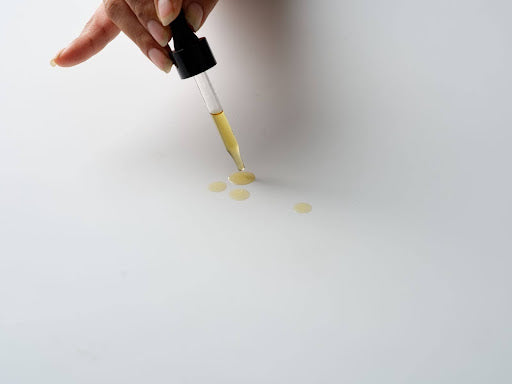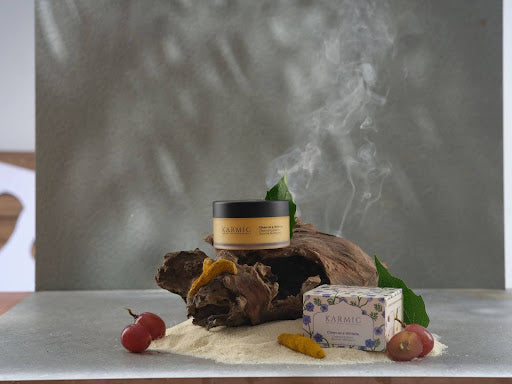Acne-prone skin can be a challenge to manage. Breakouts, inflammation, and uneven texture often make finding the right skincare products frustrating. For those seeking an ethical and effective solution, vegan skin care products offer a promising alternative. Free from animal-derived ingredients and harsh chemicals, these products are designed to support healthy, clear skin while staying true to sustainable and cruelty-free values.
However, not all vegan products are suitable for acne-prone skin. Understanding which ingredients to embrace and which to avoid can make all the difference in achieving a radiant, healthy complexion. This guide will help you navigate the world of vegan skincare and make informed choices for your skin.
Why Choose Vegan Skincare for Acne-Prone Skin?
Traditional skincare products may contain ingredients like lanolin, beeswax, or collagen derived from animals. While these are not inherently harmful, they can clog pores or trigger irritation, exacerbating acne. In contrast, vegan skin care products rely on plant-based alternatives that are lighter, less likely to cause breakouts, and rich in antioxidants, vitamins, and nutrients beneficial for the skin.
Moreover, vegan skincare brands often prioritise sustainability, cruelty-free practices, and eco-friendly packaging. This combination of ethical sourcing and skin-friendly ingredients makes vegan products an ideal choice for those who want effective skincare without compromising on values.
Ingredients to Embrace in Vegan Skincare
When selecting products for acne-prone skin, the ingredient list is key. Look for active ingredients that soothe, balance, and protect the skin without clogging pores. Here are some of the most effective ones:
1. Niacinamide (Vitamin B3)
Niacinamide is a versatile ingredient that helps regulate oil production, reduce inflammation, and strengthen the skin barrier. It also diminishes the appearance of post-acne marks and evens out skin tone. Many vegan skin care products include niacinamide in serums and moisturisers, making it a must-have for anyone struggling with breakouts.
2. Salicylic Acid (from Willow Bark)
Salicylic acid is a well-known exfoliant that unclogs pores and removes dead skin cells. For vegan formulations, this often comes from willow bark extract, a natural source of beta hydroxy acids (BHA). It’s especially effective for preventing blackheads and whiteheads without over-drying the skin.
3. Tea Tree Oil
Tea tree oil is a natural antibacterial and anti-inflammatory agent. It targets acne-causing bacteria and reduces redness without harsh side effects. Diluted formulations are ideal to prevent irritation, making it perfect for acne-prone skin.
4. Aloe Vera
Aloe vera is soothing, hydrating, and healing. Its lightweight gel reduces redness, calms irritation, and provides essential moisture without clogging pores. It’s particularly beneficial for sensitive, acne-prone skin.
5. Green Tea Extract
Green tea extract is rich in antioxidants and has anti-inflammatory properties. It helps regulate sebum production and protects skin cells from free radicals. Incorporating products with green tea extract can improve skin texture and support long-term skin health.
6. Rosehip Oil
Rosehip oil is a plant-based oil packed with essential fatty acids and vitamins A and C. It promotes skin regeneration, reduces hyperpigmentation, and improves elasticity. For those seeking a gentle anti-ageing face serum, rosehip oil is an excellent choice.
7. Hyaluronic Acid (Plant-Based)
Even oily or acne-prone skin needs hydration. Plant-derived hyaluronic acid provides deep moisture without greasiness, keeping the skin plump and supporting the absorption of other active ingredients.
8. Witch Hazel (Alcohol-Free)
Witch hazel is a natural astringent that tightens pores and controls excess oil production. Using alcohol-free versions prevents over-drying, which can otherwise trigger increased sebum production.
Ingredients to Avoid in Vegan Skincare for Acne-Prone Skin
Not all vegan ingredients are suitable for acne-prone skin. Some can aggravate breakouts or cause irritation. Here’s what to watch out for:
1. Coconut Oil (in High Concentrations)
While nourishing, coconut oil is highly comedogenic and can block pores. Avoid products where coconut oil is a primary ingredient if your skin is acne-prone.
2. Denatured or SD Alcohol
Alcohol is often used to create a matte finish, but it can strip the skin’s natural barrier, leading to dryness and rebound oiliness. Choose gentle, alcohol-free alternatives.
3. Synthetic Fragrances and Excess Essential Oils
Fragrances may irritate sensitive skin, and essential oils in high concentrations can also cause redness or allergic reactions. Opt for fragrance-free or lightly scented formulations.
4. Silicones (e.g., Dimethicone)
Silicones can trap oil and bacteria, potentially worsening breakouts. Though vegan, they create a barrier that prevents the skin from “breathing.”
5. Heavy Butters (e.g., Cocoa Butter)
Cocoa butter is rich and emollient, suitable for dry skin but not acne-prone complexions. It can block pores and trigger breakouts.
Building a Vegan Skincare Routine for Acne-Prone Skin
A structured skincare routine ensures your skin receives the right balance of cleansing, treatment, and hydration. Here’s a recommended vegan routine:
- Cleanser: Use a gentle, sulphate-free cleanser with aloe vera or green tea to remove impurities without stripping the skin.
- Toner: Apply an alcohol-free toner containing witch hazel or rose water to balance pH levels.
- Serum: Include a lightweight serum with niacinamide, willow bark extract, or tea tree oil to target breakouts and calm inflammation.
- Moisturiser: Use an oil-free vegan moisturiser containing hyaluronic acid or squalane to maintain hydration.
-
Sun Protection: Always finish with a vegan sunscreen to prevent UV damage and pigmentation.
For added radiance, incorporate a face serum for glowing skin enriched with antioxidants like vitamin C and green tea. For age prevention, a vegan anti-ageing face serum with rosehip oil and hyaluronic acid can improve texture, firmness, and elasticity while keeping the skin balanced.
Benefits Beyond Clear Skin
Vegan skincare provides more than just acne control. By avoiding harmful chemicals, parabens, sulphates, and artificial dyes, it reduces irritation and promotes long-term skin health. Sustainable, cruelty-free practices also make using these products a conscious choice that supports both your skin and the planet.
A consistent routine with the right ingredients can result in clearer, calmer, and more resilient skin. Over time, this translates to a natural glow and healthier complexion.
Conclusion: Achieve Radiant Skin with Karmic Skin
Switching to vegan skin care products can transform your approach to acne-prone skin. By focusing on ingredients like niacinamide, green tea, and rosehip oil, you can support your skin’s health without compromising on ethics or sustainability.
At Karmic Skin, every product is formulated with care, combining ethical sourcing, plant-based actives, and gentle, waterless concentrates. Whether you’re looking for a face serum for glowing skin or an anti-ageing face serum, Karmic Skin offers vegan solutions that nurture your skin, combat breakouts, and enhance natural radiance.
Embrace a conscious, effective skincare routine and enjoy healthy, clear skin that reflects your values because with Karmic Skin, beauty is ethical, sustainable, and truly radiant.




